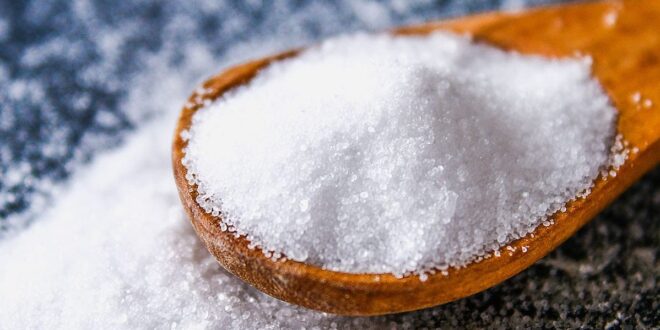Losing weight is hard, but nothing is harder than losing weight while maintaining a healthy lifestyle. In the past, the only option was to starve yourself. But now keto (ketogenic) dieting is making rapid progress in the world of weight loss. The many benefits of this diet have been proven by people who already follow it. But how can you achieve the benefits? The answer is to have higher levels of ketones in the blood.
It is known that low-carbohydrate diets are often successful in helping people lose weight. However, some people find this process to be very difficult and frustrating. The truth is that being in ketosis, even for a short period, can help us to better manage our weight, and in turn, our energy levels.
The ketogenic diet, or keto, is a great way to lose weight because it’s an incredibly low-carb, high-fat, and ultra-low-calorie diet. It may also help to control blood sugar levels, improve blood cholesterol levels, and reduce blood pressure. Many people with diabetes can lose weight on the keto diet, and some have even been able to stop taking blood sugar-lowering medications. The keto diet is not meant to be used as long-term weight-loss treatment, however.
Do you want to slim down? The sixteenth of my top eighteen selections is shown below. On the How to Lose Weight page, you’ll find all of the suggestions that have been published.
Before we get started, here’s a quick rundown of the previous advice: The first and most essential piece of advice is to eat a low-carbohydrate diet. The following individuals were in attendance: Avoid fruits, alcohol, and artificial sweeteners, check your medicines, stress less and sleep more, eat less dairy and nuts, supplement with vitamins and minerals, utilize intermittent fasting, and exercise intelligently.
It’s number sixteen:
Increasing your ketone levels

Warning: This product is not advised for type 1 diabetics. For further information, read the section below.
We’ve arrived at tip number 16. If the 15 methods above haven’t helped you lose weight, you may want to explore a more contentious option: boosting your ketone levels. What makes this a moot point in the first place? Low or high ketone levels have little effect on health or weight reduction in most individuals, therefore we don’t suggest concentrating on a particular ketone level. However, boosting ketones may be helpful for some individuals who are stuck on a weight plateau while on a low-carb diet.
What is the mechanism behind it? Let’s fast forward: The first piece of advice is to eat a low-carb diet. This is because a low-carb diet reduces insulin levels, the fat-storage hormone, allowing fat deposits to be reduced and stored energy to be released. This enables you to lose weight by eating fewer calories than you burn without feeling hungry. To enhance this impact, several of the aforementioned suggestions concentrate on changing your food.
Do you have a good understanding of what a low-carbohydrate, high-fat diet (LCHF) entails? It is required for ketosis to occur. If you don’t know where to start, watch this high-quality 11-minute video tutorial on the LCHF diet and the most essential points to remember.
Sign up for our free email to receive immediate access to the following resources:
The email is sent out once a week and includes impartial information that is free of advertising and industry influence. Your emails will be handled with complete discretion. To unsubscribe, go to the bottom of each email and click the unsubscribe button.
Ketosis
Ketosis is a metabolic condition in which the body burns fat at an abnormally fast rate. The brain, too, interacts with lipids indirectly via ketone bodies. These are energy molecules in the blood (similar to sugar in the blood) that the liver converts from fat into fuel for our brain.
The quantity of insulin in the blood must be low to promote the formation of ketones. The greater the ketone synthesis, the lower the insulin level. And if your blood ketone levels are well-controlled and very high, it means that your insulin levels are extremely low, and you’re receiving the most benefit from a low-carb diet.
Ketones are measured

Ketone levels may now be measured at home using cheap equipment. With only a prick of the finger, you can determine your blood ketone level in seconds.
On an empty stomach, the ideal time to test ketones in the blood is in the morning (i.e. before breakfast). Here are some criteria for interpreting the outcome:
- Ketosis is not defined as a value of less than 0.5 mmol/L. You’re probably not in the fat-burning zone at this point.
- Nutritional ketosis occurs when blood glucose levels are between 0.5 and 3.0 mmol/l. This is when the weight-loss and metabolic health benefits kick in. For the most part, it doesn’t matter where you are in the area.
- The top limit of nutritional ketosis is 1.5 to 3 mmol/l. If you’re having trouble losing weight for no obvious reason, increasing your ketone levels may be the answer. Although there is no scientific evidence to support this practice, it may be beneficial in exceptional circumstances.
- It is not essential to use values higher than 3 mmol/L. That is, they will perform similarly to when they are 0.5-3. Higher levels may also indicate that you aren’t getting enough food. It may be induced by an abrupt insulin deficit in individuals with type 1 diabetes, as seen below.
Urine ketone levels
Ketone levels may also be tested using urine strips, which is a more conventional method (available at drugstores or on Amazon). For a variety of reasons, ketone sticks provide less consistent results, and the aforementioned guidelines cannot be simply applied to them. They are, however, much less expensive.
My firsthand knowledge
Please feel free to read about my experiences throughout a two-month personal challenge:
- Increased ketones for weight reduction and performance (experiment)
- For four weeks, I followed a rigorous LCHF diet and kept track of my ketone levels.
- Final Report: A rigorous LCHF diet and ketone body monitoring for two months
Despite the fact that I was satisfied with my weight before to these tests, they resulted in a further weight loss of 4.5 kg (10 lbs) and a waist reduction of 7 cm (3 inches) – all without any more activity or even the smallest sensation of hunger.
How can I increase my ketone levels?

When blood ketone levels are measured, many individuals who think they are on a strict low-carb diet are shocked. They may range from 0.2 to 0.4. Why? The key is to stay away from obvious carb sources (sweets, bread, spaghetti, rice, potatoes), adhere to meal limits, and utilize fat as a taste and satiety lever. Adding MCT oil to coffee or tea may help boost ketones, which may or may not be enough to break the cycle. It may not be magical for everyone, but it may be beneficial for some.
If this fails to work
You may obtain the most hormonal effect from a low-carb diet by maintaining high ketone levels over a long period of time (say, a month). If you don’t lose weight after this, you can be certain that extra carbs aren’t the source of your weight issue and won’t keep you from losing weight. Overweight and obesity may be caused by a variety of factors. The three suggestions in this series may assist you in doing exactly that.
Consider joining our Weight Loss Forever program, which is completely free to members!
Experience
Start measuring with your ketometer, which you can get online. There are many versions, the most common of which is the Precision Xtra ketone meter. Regrettably, all of these devices are very costly, with test strips costing about $5 each test.
This is a comprehensive kit that includes everything you’ll need to test your blood ketone levels.
Additional information
Click here to learn more about the ketogenic diet:
- Beginner’s ketogenic diet
- What exactly is ketosis?
- Dr. Peter Attia, who follows a rigorous low-carb ketogenic diet, is featured in my video interview: With a very low carbohydrate content, productivity is increased.
- On the How to Lose Weight page, read all of the suggestions.
- Are you ready to finally reduce weight?
- Our new 10-week program will assist you in losing weight in a healthy and long-term manner.
Now is the time to register!
Several words of warning
If you have type 1 diabetes, don’t try to raise ketones using the methods above since it may be dangerous. Whether you have ketones in your blood, you should check your blood sugar to see if it is normal. If that’s the case, you’re in normal ketosis, just like healthy individuals on a low-carb diet.
High blood sugar coupled with high ketones in the blood, on the other hand, indicates that you have pathologically low insulin levels, which non-diabetics do not. Ketoacidosis, a potentially deadly disease, may result from this. If this occurs, you should inject extra insulin; if you’re unsure, see a doctor. For type 1 diabetics, achieving very high blood ketone levels for weight loss is not worth the danger.
In the past few years, quite a few people have been blogging about how they’ve managed to lose weight by increasing their ketone levels.. Read more about 40 ketones in urine and let us know what you think.
Frequently Asked Questions
Do higher ketones levels mean more weight loss?
Ketones are a byproduct of fat metabolism. The more fat you have, the more ketones your body will produce.
What ketone level is best for weight loss?
The ketone level that is best for weight loss is between 0.5 and 1.0 mmol/L.
Do ketones speed up weight loss?
Ketones are a byproduct of fat metabolism, and they can speed up weight loss in some cases.
 HQ Grande Prairie HQ Grandie Prairie is an online news portal aimed at providing latest day to day happenings of the World to its viewers.
HQ Grande Prairie HQ Grandie Prairie is an online news portal aimed at providing latest day to day happenings of the World to its viewers.

